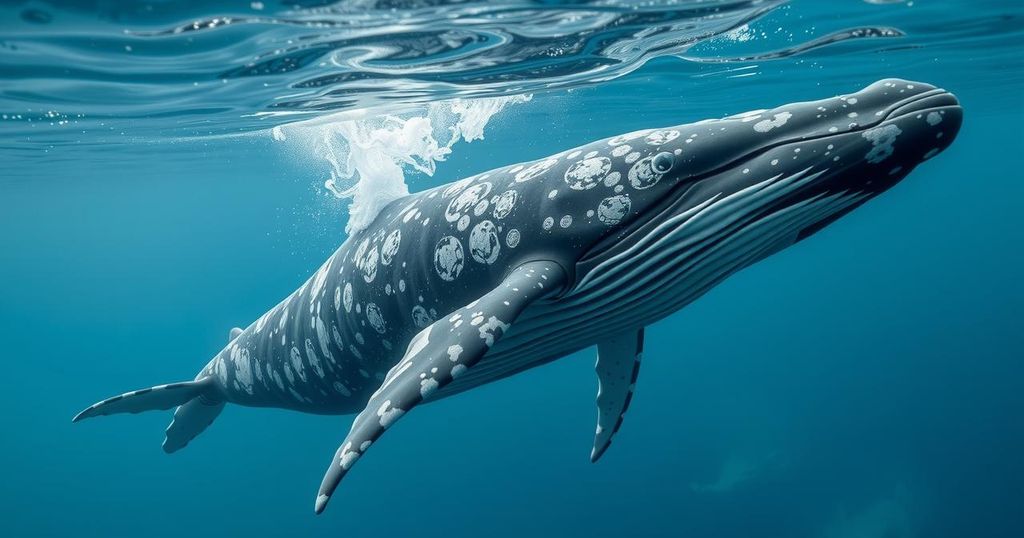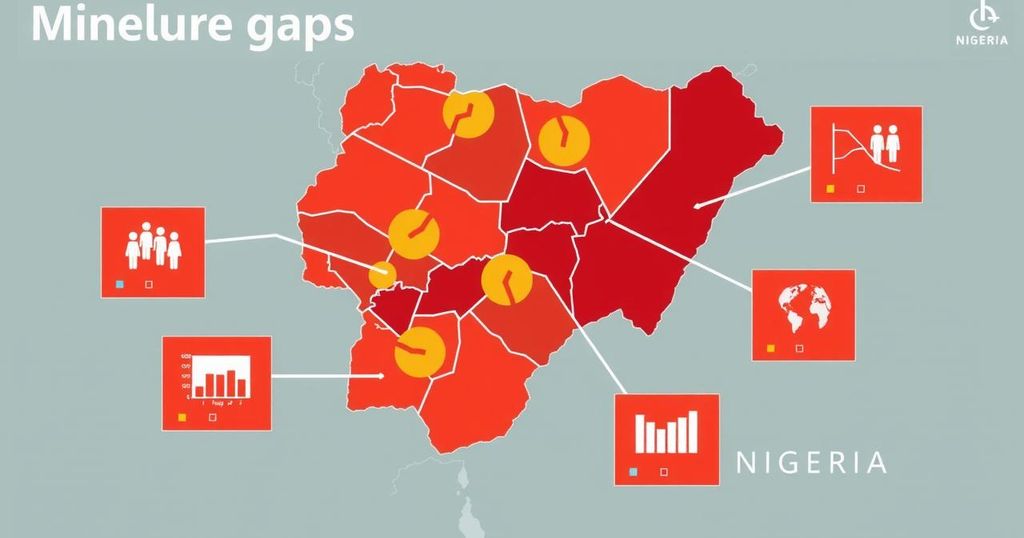Climate change
AFRICA, CLIMATE, CLIMATE CHANGE, COLOMBIA, COM, CUBA, EK, EKATERINA KALASHNIKOVA, GLOBAL WARMING, HAPPYWHALE, ILLEGAL FISHING, INDIAN OCEAN, KALASHNIKOVA, NORTH AMERICA, PACIFIC, PACIFIC COAST, PACIFIC OCEAN, SCIENCE, SOUTH AMERICA, TANZANIA, TANZANIA CETACEANS PROGRAM, WILDLIFE, ZANZIBAR, ZOOLOGY
Leila Ramsay
0 Comments
Humpback Whale’s Extraordinary Migration Stuns Scientists
A humpback whale has completed an extraordinary migration of over 13,000 km, traveling from Colombia to Zanzibar. This journey may be influenced by climate change affecting food availability or searching for new breeding grounds. Experts describe the migration as unprecedented, emphasizing the role of citizen science in tracking whale movements and its significance in studying marine ecosystems.
A remarkable observation has come to light concerning a humpback whale’s unprecedented migration, which might have been influenced by climate change factors. Originally sighted in Colombia’s Pacific waters in 2017, the whale was later observed off the coast of Zanzibar in the Indian Ocean in 2022, covering a staggering minimum distance of approximately 13,000 km. Experts believe that this extraordinary journey may be linked to the depletion of its food sources, such as krill, due to climate change or a search for new breeding grounds. Dr. Ekaterina Kalashnikova from the Tanzania Cetaceans Program characterized the migration as “truly impressive and unusual” for such a migratory species. This particular male’s travel markedly surpasses previously recorded distances for humpback whales, which annually undertake long migrations across oceans.
Humpback whales are widely known for their extensive migratory patterns, traveling significant distances between breeding and feeding grounds. These journeys are vital for species survival and population dynamics. The whale in question, nevertheless, engaged in a migration that spanned two distinct breeding grounds, raising questions about potential shifts in feeding behaviors, likely driven by environmental changes. Dr. Kalashnikova noted that the exact motivations behind the whale’s long migration remain unverified; however, several factors, including climate variations and evolutionary responses of the species, could play a significant role.
The migratory history of this individual whale has been meticulously documented through a citizen science initiative, which has amassed a comprehensive database of observations and photographs contributed by researchers, whale watchers, and the general public. Utilizing advanced artificial intelligence, this project matches individual whales by the unique patterns on their tails, allowing scientists to trace their movements globally. The insightful findings related to this remarkable migration were published in the journal Royal Society Open Science, reinforcing the ongoing importance of collaborative conservation efforts.
Humpback whales migrate annually between their tropical breeding grounds and feed in cooler, nutrient-rich waters across the oceans. As one of the most notable migratory species, they cover vast distances, making their movements crucial to understanding marine ecology. Recent studies indicate that climate change may be affecting their food availability, thereby influencing migration patterns. This migration’s extent is especially interesting as it suggests that even established species may adapt their behavior in response to environmental shifts. The application of citizen science in tracking these whales demonstrates how technology and community involvement can enhance our understanding of these majestic creatures.
In summary, the documented migration of a humpback whale from Colombia to Zanzibar over a distance of approximately 13,000 km highlights the potential impacts of climate change on marine life. This extraordinary journey not only sets a new record for humpback migrations but also emphasizes the need to investigate the broader ecological implications of these shifts. The reliance on citizen science to collect and analyze migration data signifies a collective effort in marine conservation and research. Such insights are essential for the ongoing protection of these species and their habitats.
Original Source: www.bbc.com




Post Comment